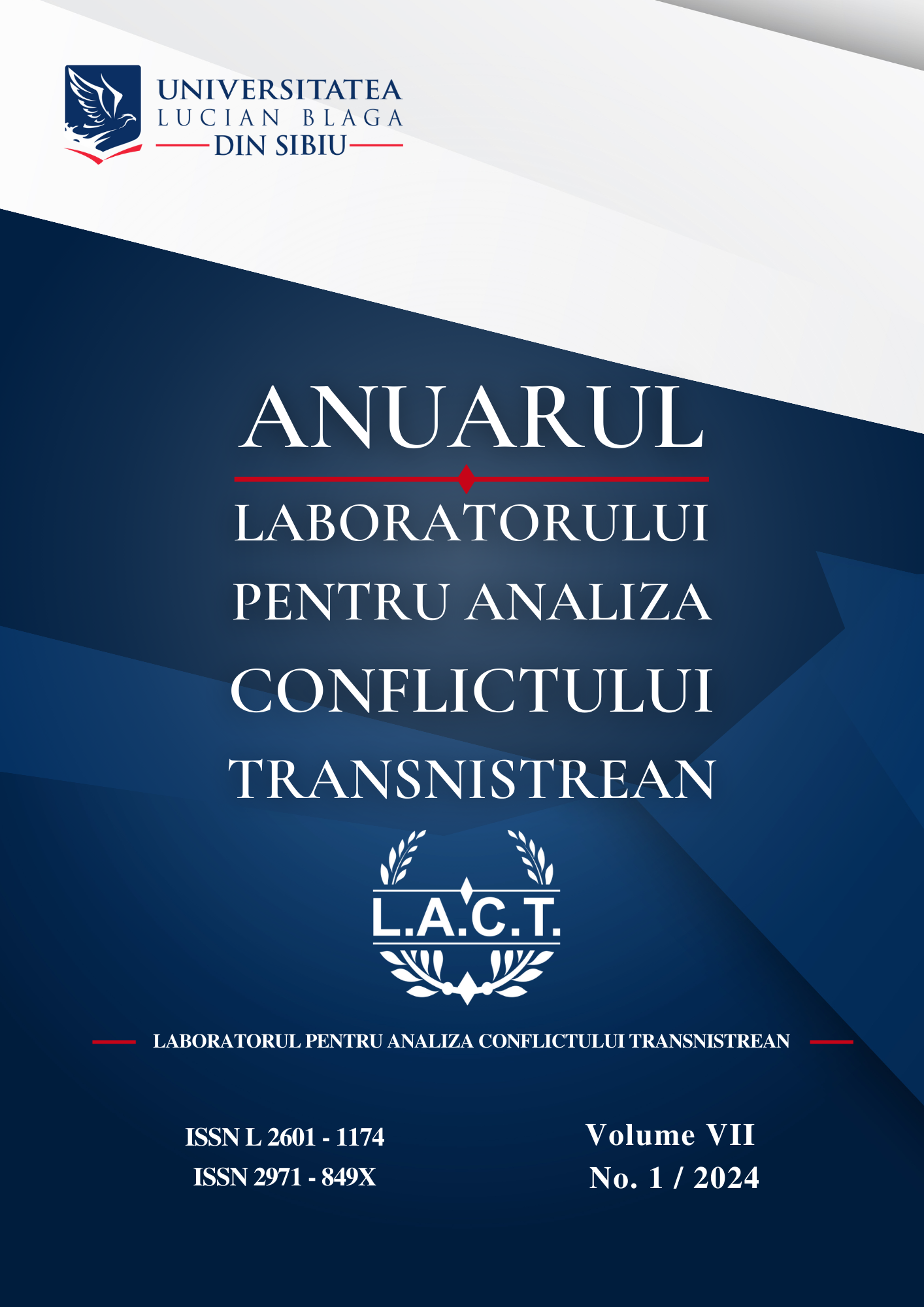BUILDING TRANSNISTRIAN IDENTITY: ACADEMIC INSIGHTS ON HISTORICAL NARRATIVES,
SYMBOLIC GOVERNANCE, AND GEOPOLITICAL DYNAMICS
BUILDING TRANSNISTRIAN IDENTITY: ACADEMIC INSIGHTS ON HISTORICAL NARRATIVES,
SYMBOLIC GOVERNANCE, AND GEOPOLITICAL DYNAMICS
Author(s): Ruslana GROSUSubject(s): International Law, Civil Society, Local History / Microhistory, Military history, Political history, Social history, Government/Political systems, International relations/trade, Security and defense, Developing nations, Transformation Period (1990 - 2010), Geopolitics, Politics of History/Memory, Politics and Identity, Peace and Conflict Studies
Published by: Editura Universitatii LUCIAN BLAGA din Sibiu
Keywords: Transnistrian identity; Linguistic policies; Soviet legacy; Geopolitical influence; Contested statehood; Unrecognized state
Summary/Abstract: This article explores the identity-building processes of Transnistria, an unrecognized entity in Eastern Europe. Through an examination of symbolic nation-building, diversity policies, and the region's socio-political strategies, the paper identifies the distinct characteristics that underpin Transnistria’s identity. The study also highlights challenges such as non-recognition, geopolitical dependencies, and ethnic tensions, offering implications for policy and research in multi-ethnic and unrecognized states. The paper includes references to articles and research that explore and justify the existence of a Transnistrian identity, ranging from perspectives that regard it as a fabricated construct to those that frame it as a bastion of multiculturalism, however, the author doesn’t endorse the last viewpoints. Instead, these references are presented to illustrate the diversity and breadth of interpretations surrounding Transnistrian identity. By showcasing the contrasting perspectives, the study demonstrates the contested nature of the concept and highlights the complex debates it has generated in academic and political discourse. Moreover, the study critically addresses the symbolic policies implemented in Transnistria, which create an illusion of a functional model of diversity. In reality, these policies primarily serve an authoritarian regime that uses them as tools to consolidate its power rather than to genuinely foster social cohesion. The dominance of symbolic over substantive actions underscores the performative nature of these measures, which are designed to project inclusivity without delivering concrete outcomes for minority groups. Ultimately, the promoted Transnistrian identity is portrayed as a political instrument rather than an authentic reflection of social unity. It is a mechanism employed by the ruling elite to legitimize their governance and differentiate Transnistria from the Republic of Moldova, rather than a genuine expression of shared cultural or ethnic solidarity among its diverse population. This analysis underscores the dissonance between the rhetoric of multiculturalism and the underlying political realities of the region.
Journal: Anuarul Laboratorului Pentru Analiza Conflictului Transnistrean
- Issue Year: VII/2024
- Issue No: 1
- Page Range: 6-29
- Page Count: 24
- Language: English

